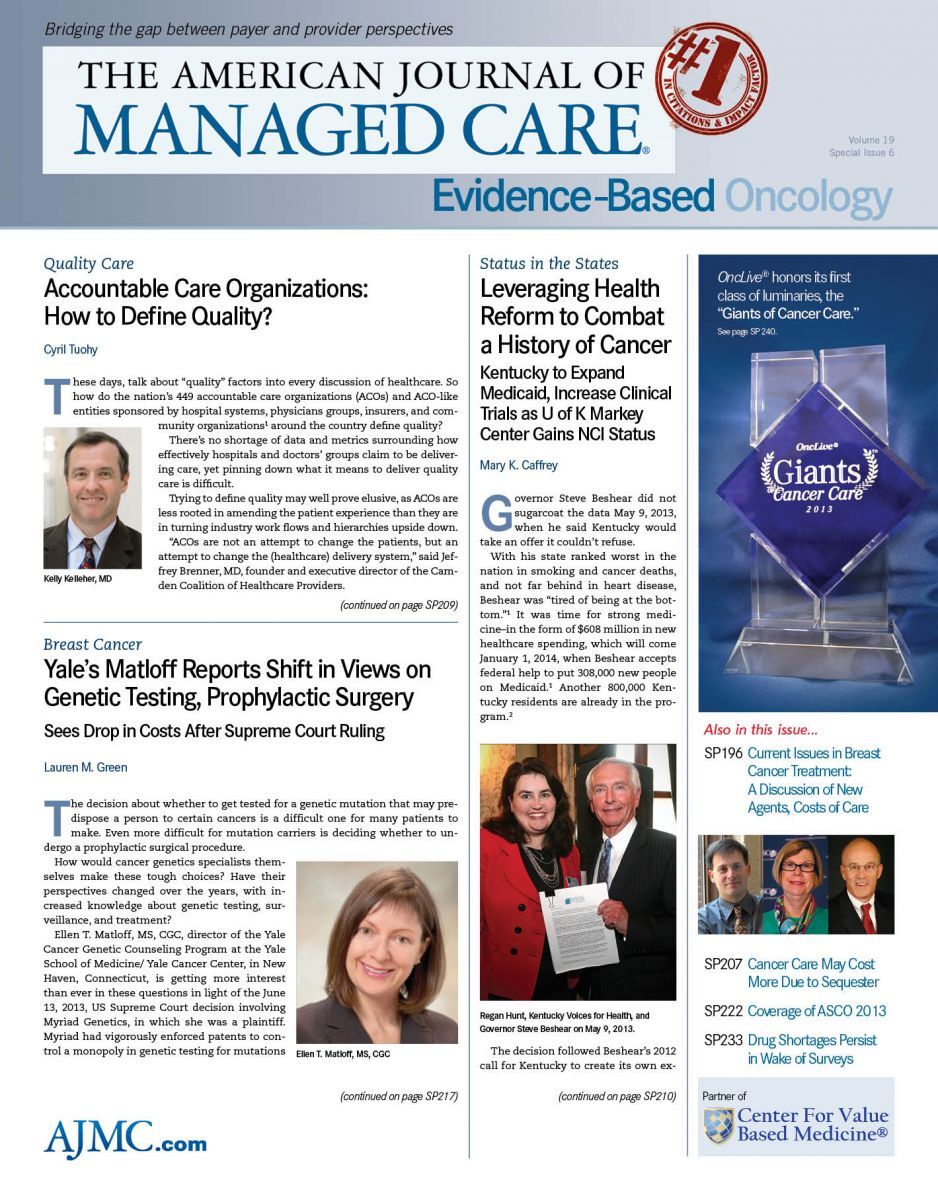- Center on Health Equity & Access
- Clinical
- Health Care Cost
- Health Care Delivery
- Insurance
- Policy
- Technology
- Value-Based Care
More Genetic Screening Needed for African-American Breast Cancer Patients
One in 5 African-American women with breast cancer carries an abnormality in at least 1 gene associated with breast cancer susceptibility, according to results of a genomic profiling study by researchers at The University of Chicago, suggesting a need for increased genetic screening among a population group which previously has been understudied.
The research represents the first comprehensive examination of all known breast cancer susceptibility gene variations among African-American women, a group disproportionately affected by early onset and triple-negative breast cancer, a difference researchers have hypothesized may have a genetic component. However, prior studies have focused on BRCA1/2 gene mutations rather than on all of the 18 inherited clearly damaging mutations currently known to be associated with an increased risk of breast cancer. Results of the study were announced at a press briefing during the 2013 ASCO Annual Meeting.
Overall breast cancer survival is worse among African-American women than it is for white women, and the gap continues to widen, noted the study’s lead author, Jane E. Churpek, MD, assistant professor of medicine. “For those of us here in Chicago, [this study] is particularly relevant, because we have one of the worst disparities in the country.” The incidence of advanced breast cancer also is on the rise among young women, especially young African-American women, she added.
For the study, researchers analyzed DNA from 249 unrelated African-American women at The University of Chicago’s Cancer Risk Clinic, using the targeted genomic capture and next-generation sequencing assay known as BROCA. This approach allows investigators to look at multiple genes at once and identify multiple types of mutations in those genes all at the same time, Churpek explained. The average age of the women included in the study was 43 years.The researchers found that 22% of these patients (n = 56) inherited a clearly damaging mutation, 79% of which were BRCA1 (n = 26) or BRCA2 (n = 20). Investigators also found mutations in other genes with defined cancer risks, including ATM (n = 5), CHEK2 (n = 3), PALB2 (n = 3), and PTEN (n = 1).
Almost all of the identified gene mutations were different, noted Churpek, which has important implications for genetic testing programs. “For some populations, we can use tests which look at only a few sites in a few genes, and we can identify the majority of mutations, but that technique will not work for this population with such great genetic diversity.”
The researchers also looked at how these mutations were distributed according to personal and tumor characteristics. Damaging mutations were carried by 30% of women with a family history of breast or ovarian cancer, 30% of those with triple-negative breast cancer, and 27% of women who were young (aged ≤45 years) at diagnosis. Churpek added that even among those patients with no family history of breast or ovarian cancer, over 10% still carried a mutation, which, she stressed, “reminds us that family history is not the only criterion that we should think of.”
“This work highlights the critical role of improved awareness and access to genetic counseling and testing services for all women, especially African-American women, who have unfortunately not utilized these services well in the past,” said Churpek. Demonstrating the cost-effectiveness and efficiency of next-generation sequencing assays—which allow for the comprehensive screening of multiple genes from multiple people in 1 test in a single visit—represents another important aspect of the study, added Churpek. “These tools will allow us to identify who’s at risk before they develop cancer, so we can begin to focus on prevention and eventually impact public health,” she concluded. Churpek JE, Walsh T, Zheng Y, et al. Inherited mutations in breast cancer genes in African American breast cancer patients revealed by targeted genomic capture and next-generation equencing. J Clin Oncol. 2013;31(suppl; abstr CRA1501).

Quality of Life: The Pending Outcome in Idiopathic Pulmonary Fibrosis
February 6th 2026Because evidence gaps in idiopathic pulmonary fibrosis research hinder demonstration of antifibrotic therapies’ impact on patient quality of life (QOL), integrating validated health-related QOL measures into trials is urgently needed.
Read More
Infertility Coverage Boosts ART Use and Pregnancy Success: Richard A. Brook, MS, MBA
August 26th 2025In this episode, Richard A. Brook, MS, MBA, discusses his study showing that infertility treatment coverage increases assisted reproductive technology (ART) use and improves pregnancy outcomes.
Listen
Building Trust: Public Priorities for Health Care AI Labeling
January 27th 2026A Michigan-based deliberative study found strong public support for patient-informed artificial intelligence (AI) labeling in health care, emphasizing transparency, privacy, equity, and safety to build trust.
Read More

